Embracing Emotional Challenges on the Bankruptcy Journey
When facing financial trouble, are you ready for the emotional impact of bankruptcy? In addition to numbers, the process is emotional. In Ridgeland, Mississippi, The Rollins Law Firm understands the financial and emotional aspects of bankruptcy.
At the Rollins Law Firm, we can help you through bankruptcy with our vast experience. Legal guidance with empathy acknowledges the emotional burden of financial uncertainty. They provide straightforward, jargon-free advice to keep you informed without complications with the law.
Bankruptcy isn’t just a financial restart; new beginnings are possible. Legal assistance from The Rollins Law Firm will brighten your way. Take the first step toward financial security by scheduling a free consultation today.
What is Bankruptcy?
Bankruptcy is a legal process in which an individual or a business declares their inability to repay their outstanding debts. The U.S. federal bankruptcy laws allow entities facing significant financial distress to restructure, reduce, or eliminate their debt under the protection of the bankruptcy court. This process is designed to provide a fresh start for the debtor and ensure equitable treatment of creditors.
There are several types of bankruptcy, such as:
- Chapter 7: Often referred to as “liquidation” bankruptcy, it’s where most of the debtor’s assets are sold off to pay creditors, and many of the remaining debts are discharged, or wiped out. An individual, business, or partnership can file under this chapter.
- Chapter 11: Typically used by businesses, this allows them to restructure their debts and continue operating.
- Chapter 12: This is specifically designed for “family farmers” and “family fishermen” with “regular annual income.” It allows financially distressed family farmers and fishermen to propose and carry out a plan to repay all or part of their debts. Chapter 12 is structured more simply and less expensively than Chapter 11, which is more suited to large corporate reorganizations.
- Chapter 13: This is designed for individuals with a regular income. Instead of selling off assets, the debtor proposes a plan to repay some or all of their debts over a period of three to five years. This allows the debtor to keep some assets, like a home, that might otherwise be lost in Chapter 7.
Understanding the Emotional Landscape of Bankruptcy
Bankruptcy is usually a last resort after all other options have been exhausted. Filing for bankruptcy doesn’t necessarily bring relief, despite popular belief. Bankruptcy can cause many negative emotions that shouldn’t be overlooked. Are you ready for the emotional impact of bankruptcy? Successfully navigating this process requires understanding its emotions.
Bankruptcy: A Path to Financial Reclamation
When events beyond your control have caused excessive debt, bankruptcy can help you restore financial control. Unexpected medical bills or job losses can sometimes be the driving force behind this decision. Understanding that bankruptcy is a solution to solving financial problems is the first step to coping with it emotionally.
How Does Bankruptcy Affect Emotional Well-Being?
Filing for bankruptcy is not just a financial decision; it has profound emotional implications. The experience elicits a range of feelings, including:
- Relief: Many experience an immediate relief from aggressive creditors and the looming pressure of unpaid bills. This sensation of liberation often feels like a weight being lifted, providing a clearer path forward.
- Shame: Particularly in cultures valuing financial independence, bankruptcy can be perceived as a personal failure. This perception often leads to deep feelings of shame, even if uncontrollable events caused the bankruptcy.
- Guilt: Linked closely with shame, guilt can arise when individuals feel they’ve let down their family or themselves, especially if others had financially depended on them.
- Isolation: Due to the societal stigma surrounding bankruptcy, many individuals withdraw from social circles or avoid discussing their situation. They may feel alone in their struggles, even when many others face similar challenges.
- Depression: The prolonged stress of unpaid bills, potential asset loss, and societal judgment can lead to feelings of hopelessness or persistent sadness.
- Anxiety: Uncertainty about the future, the potential loss of assets, and navigating the complex legal system can induce heightened levels of anxiety. Worries about future financial stability and revisiting such scenarios can perpetuate this feeling.
Considering these multifaceted emotional challenges, it’s important for those going through bankruptcy to seek support or counseling. Addressing emotional well-being is foundational to navigating the aftermath of bankruptcy and fostering resilience and recovery.
Balancing Expectations and Reality
The bankruptcy path requires balancing expectations and realities. The solution takes time and effort. There may be frustration or despair, but remember that your current sacrifices are investments in your future stability. Acknowledge your anger or resentment and use it to avoid similar financial mistakes in the future.
Equipping Yourself for the Journey
Learning about bankruptcy is crucial to preparing for its emotional consequences. Understand your responsibilities and the court’s actions before filing bankruptcy. A competent ally, like a bankruptcy attorney from The Rollins Law Firm, can help navigate this complicated road.
Addressing Emotional Challenges
The emotional impact of bankruptcy is undeniable. Financial instability typically leads to a loss of self-identity, self-esteem, and confidence. It’s important to separate bankruptcy’s practicalities from its emotional effects. This requires focusing on practical facts and learning from experience to safeguard your financial future.
Embracing Change and Fresh Starts
Filing for bankruptcy can change your life. It may involve selling assets to pay off debts, reducing wealth and possessions. This change might have an impact on one’s personal relationships, career, and mental health. Accepting bankruptcy as a new beginning is crucial to changing your viewpoint and embracing new opportunities.
Seeking Professional Support
After bankruptcy, legal and mental health professionals can help with emotional recovery. Getting help isn’t a show of weakness; it’s an acknowledgment that direction and assistance are needed to manage emotional stress. Organizations like the Substance Abuse and Mental Health Services Administration (SAMHSA) and United Way provide resources for mental health support.
Partnering with The Rollins Law Firm
The bankruptcy route offers growth and resilience. It rebuilds economic and emotional health. Remember, you’re not alone on this journey. The Rollins Law Firm in Ridgeland, Mississippi, is your local legal partner and compassionate advocate. When suffering the emotional consequences of bankruptcy, know that you have legal support to recover financially and go forward.
Where Can I Go to Learn How To Improve My Financial Health?
Improving your financial health is a crucial step toward a stable future. If you’re seeking guidance on this journey, there are several avenues you can explore:
- Financial Literacy Workshops: Many community organizations, libraries, and educational institutions offer workshops and seminars to improve financial literacy. The sessions address budgeting, saving, investing, and debt management. These programs might help you develop a solid financial foundation.
- Online Resources: The internet offers a wealth of materials to improve your financial understanding. Many websites, blogs, and forums offer free personal finance advice, including budgeting, debt reduction, and investment options. For reliable counsel, consult trusted sources.
- Financial Advisors: Seek help from a financial adviser for customized plans geared to your financial situation. These counselors are capable of making thorough financial strategies, realistic goals, and difficult financial decisions..
- Mobile Apps: In the digital age, mobile apps can help you manage your funds successfully. From budgeting apps that track costs to investment platforms that provide insights, these tools can help you manage your finances and make smart financial decisions.
- Nonprofit Organizations: Several nonprofit organizations focus on financial education and counseling. They offer workshops, seminars, and one-on-one counseling sessions to help you manage your finances better and plan for the future.
- Local Community Centers: Many community centers host events and workshops aimed at improving financial literacy. These events often provide an opportunity to learn from financial experts and engage in discussions with fellow community members.
- Library Resources: Public libraries often have a selection of books, ebooks, and other resources on personal finance. Exploring these materials can give you a solid understanding of various financial concepts and strategies.
- Online Courses: Platforms like Coursera, Udemy, and Khan Academy offer online courses on personal finance. These courses cover topics ranging from basic budgeting to advanced investment strategies, allowing you to learn at your own pace.
Remember that improving your financial health takes time and learning. These tools can provide you with the information and skills to make smart financial decisions and ensure your financial future.
Take the First Step Toward Financial Recovery
Can you handle the emotional toll of bankruptcy and reclaim financial control? The Rollins Law Firm supports you. Our sympathetic approach and legal guidance will help you through this journey. The Rollins Law Firm in Ridgeland, Mississippi, understands the financial and emotional burdens of bankruptcy.
Contact us today at The Rollins Law Firm to schedule a free consultation and learn how we can help you navigate the emotional difficulties of bankruptcy. Don’t let fear and uncertainty hold you back from a brighter financial future. Take that crucial step today and embark on a new beginning with us at The Rollins Law Firm by your side.

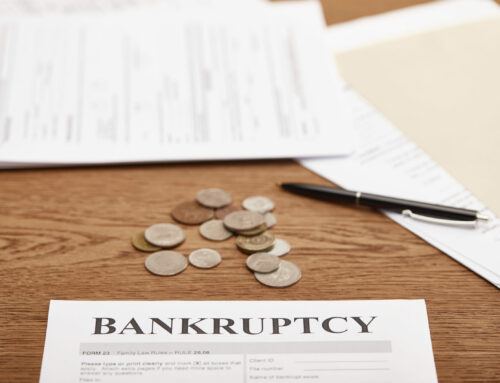
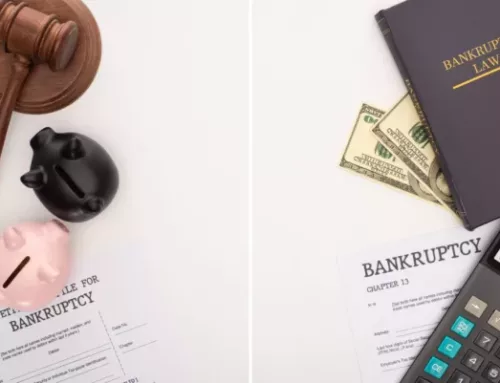
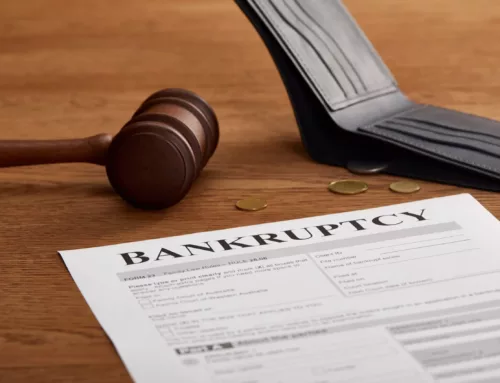
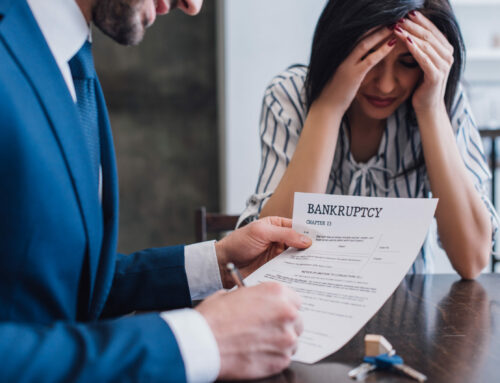

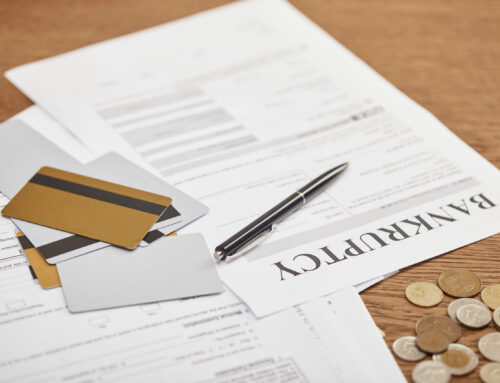

Connect with Us